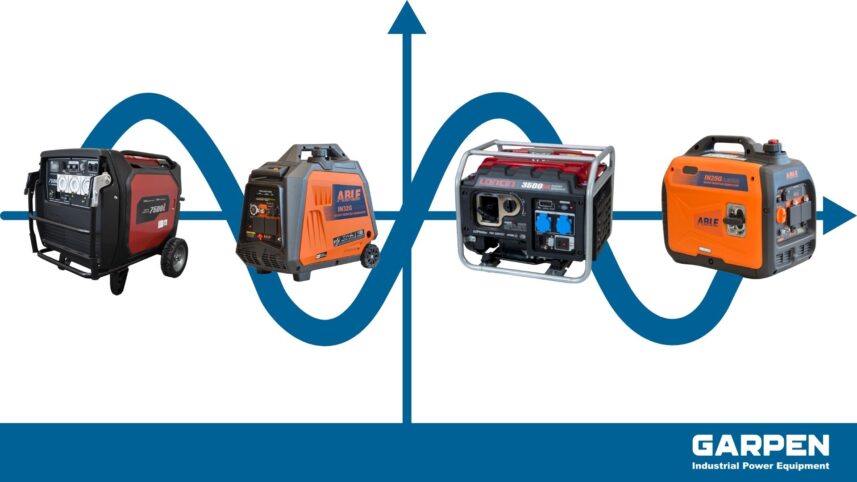
What is an Inverter Generator?
In a few words, it is a generator that can safely power sensitive electronic devices. They produce clean and stable energy in comparison to traditional generators.
How Do Inverter Generators Work?
To understand how they work, you first need to understand the inverter. Where traditional generators use a heavy alternator, inverter generators use a lightweight digital electronic alternator – the inverter.
The inverter generator produces pure sine wave power. It simply means that you get power as clean as what get from the mains power outlets at home. The generator produces DC power, then the inverter inverts and converts DC power to a steady flow of clean AC power.

Pros:
The first and biggest selling point of an inverter is its ability to produce clean power – free from spikes that might damage sensitive devices. This makes the inverter generator a safe power source for sensitive equipment such as home appliances, smartphones, and more.
Secondly, another advantage of an inverter generator is the design. The inverter technology allows manufacturers to design compact, lightweight portable generators that are perfect for caravanning, 4WD touring and camping. The size of an inverter generator can be up to half the size of the conventional generators
Inverter generators also offer greater fuel efficiency compared to conventional models because its engine speed automatically adjusts in direct proportion to the load, which means it maximizes the fuel efficiency while maintaining 240V supply. This means it has a longer continuous running time and you do not need to refuel frequently.
Lastly, inverter generators are much quieter than most conventional generators because inverter generators are designed with sound-proofed housing, insulators, and mufflers. So, there will be no loud, vibrating generator units. Whether you’re using it for camping or home backup, you don’t have to worry about the neighbours.
Cons:
The drawbacks of an inverter generator come down to your power requirements. If you need to power heavy-duty machinery and tools, an inverter generator just might not be enough. While conventional generators have models up to 15,000 watts, the inverter generators max out at around 6000 to 7000 watts making them better suited for just smaller power needs, such as camping and caravanning or some domestic backup power. The truth is inverter generators are not designed for heavy loads.
To wrap up, if you just require small loads such as to power home appliances, laptops, smartphones, and other sensitive devices, inverter generators are significantly the best choice because of its pure sine wave or clean power delivery. Ideally suited for caravanning, camping and are great equipment to have as backup power if you live in an area where power blackouts are regularly occurring.



